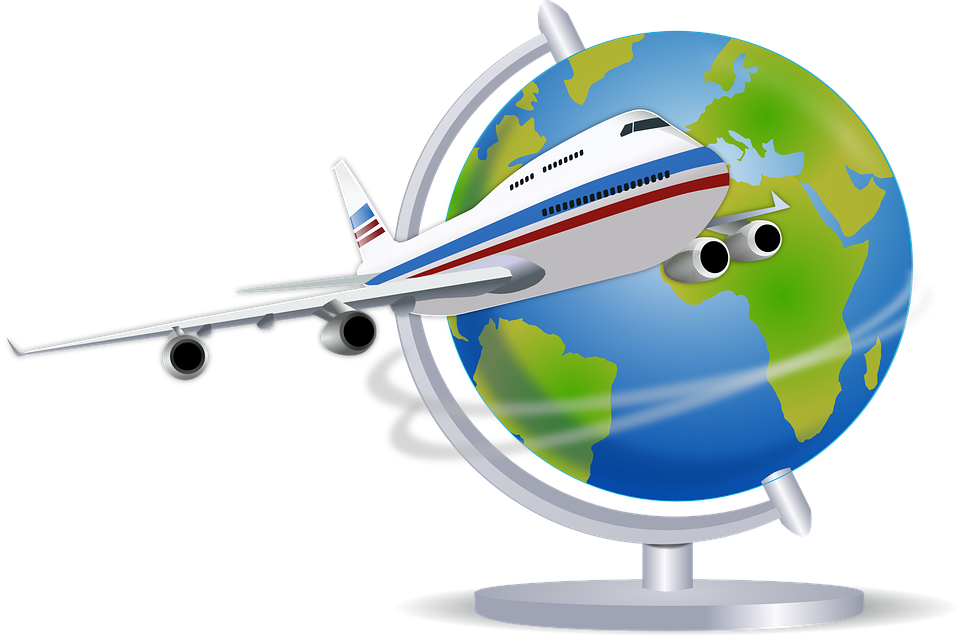Airlines, airports, hotels and travel advisors are taking steps toward travel options that are friendlier to the environment and lessen their carbon footprint.
Airlines
Carbon emissions from planes are increasing at an average of 3 to 4% per year. Many airlines are doing what they can to improve. Three years ago, the aviation industry created a 15-year plan to lessen carbon emissions with an industry goal to reduce emissions by 2.5 billion tons. British airline easyJet has announced a goal of moving to an electric fleet by 2027, while Airbus, Rolls-Royce and Siemens are working on hybrid-electric planes for commercial use.
Airlines are also doing their part by bringing on more fuel-efficient aircraft and reducing the use of plastic. Nancy Young, vice president for environmental affairs at Airlines for America, says her industry has a business incentive to reduce emissions. “The more fuel-efficient you are, hence the more carbon-efficient you are, the better you’re going to do,” she said.
Air Canada, in particular, is keeping sustainability in mind in their decision-making. The airline has stopped using plastic stir sticks, and more significantly, increased fuel efficiency by 43% in the last 29 years.
A4A’s Young points out that airlines often get a bad rap when it comes to emissions, and in reality, the industry contributes only 2% of greenhouse gases in the US. “We’ve outstripped the growth of emissions from the growth of aviation,” she said.
Airports
Airports are trying to be less wasteful as well. “Many airports have installed water refill stations beyond security so passengers don’t have to throw away their water bottle, but can empty it before passing security,” Ray Raymond Kollau, founder of AirlineTrends, told SmartBrief. “Another interesting example is Starbucks partnering with London Gatwick Airport and Hubbub to serve passengers coffee in recyclable cups that can be placed in special collection bins located around the airport. “
There are airports in the US making improvements, too. “San Francisco airport is now banning the use of plastics at the airport, while a growing number of airlines are tackling the issue of single use plastics inflight as well as reducing waste,” Kollau continued. “For example, Air New Zealand has just introduced edible plant-based coffee cups.”
Hotels
The hotel industry is also doing its part by banning single-use plastics, such as straws and water bottles. Across Europe, single-use straws will be banned by 2021, while Marriott International and other large chains have promised to get rid of single-use plastics.
Additionally, hotels and resorts are working to cut down on resource and energy consumption. Hostelling International USA, for example, is the first hostel company to use “smart showers,” which limit showers to seven minutes. If guests use the showers for thirty seconds less, they’ll save the hostel one million gallons of water a year. “If big hotels can make small changes, the ripple can be huge,” Paula Vlamings, chief executive of Tourism Cares, told The New York Times. “Sustainability is more than energy conservation or recycling; it is about sustaining communities for the tourism product.”
In Charlestown, S.C., the Spectator Hotel has established a forward-thinking food waste diversion program. Any food left half-eaten, like fruits and pastries, are placed in a digester that turns them into reusable water. Since the hotel started the program over a year ago, it has created 944 gallons of water. The Palms Hotel & Spa in Miami, meanwhile, performs a beach cleanup every three months.
Travel advisors
The travel industry is seeing an increased interest in sustainable travel. A 2019 survey finds that 73% of global travelers planned on using an eco-friendly accommodation at least once. In 2017, only 65% of travelers were interested.
What can travel advisors do to help? “Advisors can guide clients to products that are adopting sustainability in their businesses, and they can encourage suppliers to adopt sustainability measures,” says Jonathan Day, tourism management and chair of Travel Care Code. “If I want to buy organic food, I can find it on the shelf, but it’s much harder with travel,” he said. “So if my travel advisor can direct me toward the right way, that’s an important service.” Day sees these suggestions as a way for agents to prove their value to clients as well.
Related stories:
- The rise of natural winemaking means more accidentally vegan vintages
- How airlines, hotels are expanding business travel programs
- Take these trends out to the ball game
__________________________________________________
If you enjoyed this article, sign up for ILHA SmartBrief, ISPA Smartbrief or SmartBrief for the Travel Professional to get news like this in your inbox, or check out all of SmartBrief’s food and travel newsletters as we offer more than 30 newsletters covering the food and travel industries from restaurants, food retail and food manufacturing to business travel, the airline and hotel industries and gaming.
